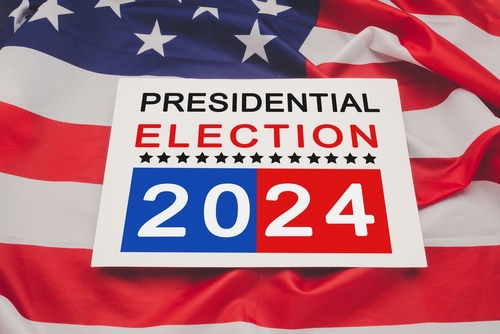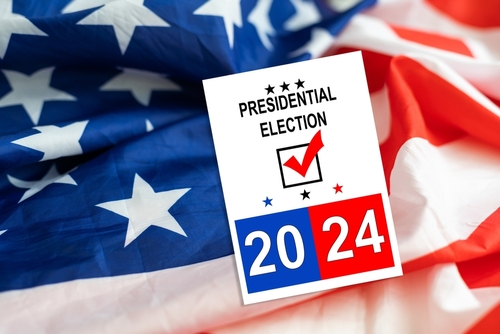House Speaker Mike Johnson has scheduled a vote this week on a new bill that would keep the federal government funded for six more months and require states to verify proof of citizenship, such as a birth certificate or passport, when registering new voters. This decision comes as Johnson faces pressure from the more conservative members of his Republican conference.
Congress must approve a temporary spending bill before the end of the fiscal year on September 30 to prevent a government shutdown, which could occur just weeks before the presidential election. However, the inclusion of a citizenship verification requirement complicates the chances of passing the bill. The measure is unlikely to advance in the Democratic-controlled Senate, if it even makes it that far.
“Today, House Republicans are taking a critically important step to keep the federal government funded and to secure our federal election process,” Johnson said on Friday. “Congress has a responsibility to do both, and we must ensure that only American citizens can decide American elections.”
Democrats strongly oppose the GOP’s proposal and have argued that any continuing resolution must have bipartisan support. They contend that Johnson is making the same mistake former Speaker Kevin McCarthy made last year when he tried to appease conservatives but ultimately had to rely on Democrats to pass a temporary spending bill. That dispute led to McCarthy’s ouster from the speaker’s position a few days later, with eight Republicans joining Democrats in voting for his removal.
“As we have said repeatedly, avoiding a government shutdown requires bipartisanship, not a bill drawn up by one party. Speaker Johnson is making the same mistake as former Speaker McCarthy did a year ago, by wasting precious time catering to the hard MAGA right,” Democratic Sens. Chuck Schumer of New York and Patty Murray of Washington state said in a statement. “This tactic didn’t work last September and it will not work this year either.”
The bill, which has support among House Republicans, also mandates photo identification for voter registration. The House Freedom Caucus, which represents some of the chamber’s most conservative members, has called for this measure to be included in a temporary funding bill that would keep the government funded into early 2025.
Republicans argue that the proof of citizenship requirement is necessary to ensure that only American citizens vote in U.S. elections, thereby increasing confidence in the federal election system. Opponents, however, maintain that noncitizen voting in federal elections is already illegal and argue that such requirements could disenfranchise millions of eligible voters who do not have the required documents readily available.
“If Chuck Schumer decides he doesn’t want to bring it [to a vote], then Chuck Schumer will be deciding that he wants to shut down government. It’s not us,” said Sen. Rick Scott, R-Fla., during an interview on Fox Business News.
Meanwhile, Republicans have intensified their rhetoric on noncitizen voting amid a surge of migrants at the U.S.-Mexico border under President Biden’s administration, arguing that Democrats are allowing migrants into the country to add them to voter rolls. However, evidence shows that noncitizen voting in federal elections is exceedingly rare.
Another significant issue tied to the short-term funding bill is the duration of the funding extension. House Appropriations Committee Chairman Tom Cole, R-Okla., has expressed a preference for allowing the next president to prioritize their agenda without a prolonged spending battle. However, the House Freedom Caucus is advocating for an extension of funding until after the January inauguration, banking on a Trump victory to secure their desired spending cuts and policy priorities.
As Congress returns to Washington after a five-week recess, the short-term bill is seen as crucial, given that both the House and Senate are far from completing their work on the dozen annual spending bills needed to keep government agencies and programs running in the upcoming budget year. The House has passed five of the twelve bills, while the Senate has yet to pass any but has taken a more bipartisan approach by advancing eleven bills through the Senate Appropriations Committee with broad support.
House Republicans, meanwhile, continue to push their agenda through with little Democratic backing, setting up a potential standoff in the coming weeks.






